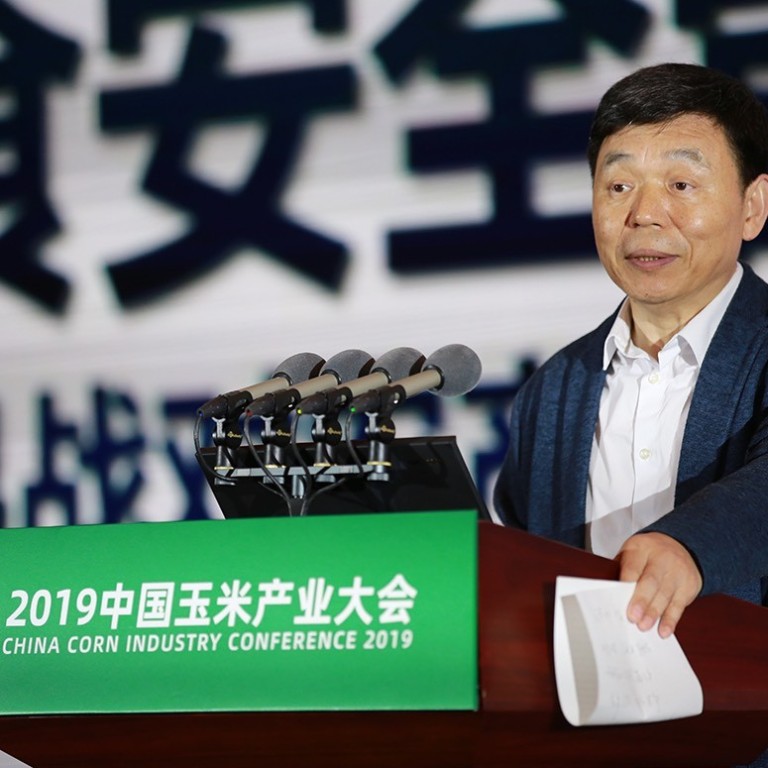
China should continue using food imports as chip in US trade talks, says former leading agriculture negotiator
- Cheng Guoqiang, a professor at Tongji University in Shanghai, says China should avoid over reliance on imports and rely mainly on domestic supplies to meet demand
- American President Donald Trump has repeatedly charged that China has not lived up to its promises to buy large quantities of US farm products
China should diversify its imports to secure the food supply for its 1.4 billion people, but should continue to use purchases of US farm products as a “countermeasure” in the trade negotiations, according to a former leading agriculture negotiator.
Cheng Guoqiang, who was part of China’s agriculture negotiations team that led to the country joining the World Organisation in 2001, joins a chorus of voices who say that Beijing should never compromise on food security in trade talks with Washington.
Cheng, who helped draft agriculture policy for China’s top leadership until 2009, said that the trade war has “raised new challenges for China’s economic security, including food supply security”.
US President Donald Trump has repeatedly charged that China has not lived up to its promises to buy large quantities of US farm products, while China has responded that American tariffs have made the price of US farm products uncompetitive for Chinese buyers.
We still have to have this countermeasure, but we don’t need to say too much about it
“We still have to have this countermeasure, but we don’t need to say too much about it,” added Cheng, who is a professor at Tongji University in Shanghai, on the sidelines of a corn industry conference in the northern Chinese port city of Dalian on Wednesday.
A feasible strategy going forward is for China to rely mainly on domestic supplies to meet demand, while supplementing the supply with imports but without relying on a few main sources, said Cheng.
Between January and July, China’s agricultural imports increased by 4.4 per cent, compared to a year earlier, to US$84.04 billion.
“China must have a globalised food and agriculture strategy. Modernising the food safety management of the country is the basic pillar for us in coping with or controlling changes,” said Cheng.
“The US-China trade frictions, US and European subsidies and other global political events have deeply influenced global agricultural trade in the last two decades.
“The Asian [agriculture] market propped up by China will be the core of [global] trade picture changes in the next three decades or even longer term.”
Beijing has stepped increased its efforts to buy farm goods from non-US suppliers, and in the latest move, China has agreed to purchase soybean meal from Argentina, the world’s biggest exporter of the animal feed, after two decades of talks.
China has also granted permission for importers to buy soybeans from Russia, although available supply could be very limited compared to China’s demand. China is also looking to import more meat from countries including Denmark and Brazil as pork prices rise following the outbreak of African swine fever hit supplies.
Wang Xiaohui, deputy director of China National Grains and Oils Information Centre, an agency under China’s grain reserve administration, said that ensuring food supply security is now “a fundamental task” amid the trade war with the US and the economic downturn. Wang, though, said there is no danger of supply shortage.

